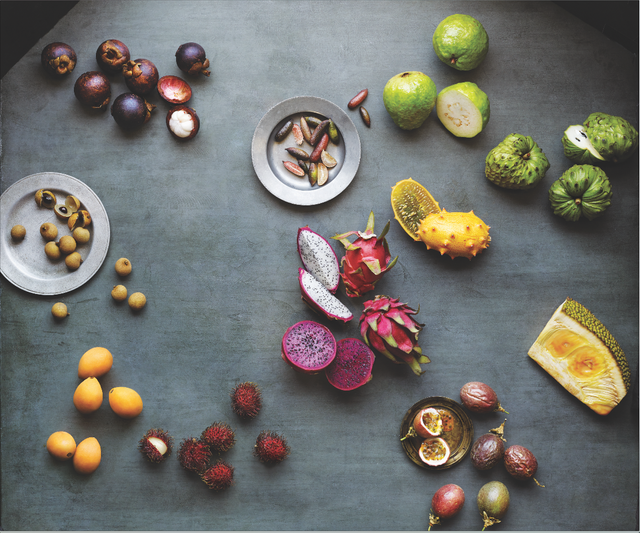food food photography fitness family flowers

Finger Lime
Not a true lime, yet a member of the citrus family, finger limes are native to Australia and also are known as “caviar limes.” Filled with juicy greenish-white or pink sacs that burst when bitten, they have a perfume-y flavor reminiscent of lemon, lime and a hint of fresh herbs. Usually eaten fresh, finger limes also can be made into marmalade.
Longan
A smaller relative of the lychee, longans have a translucent white, soft pulp that surrounds a large black seed. When cut in half, it resembles an eyeball, earning this fruit its nickname: dragon’s eye. In China, longans are sometimes dried and added to tea for special occasions.
Loquat
Native to China and widely grown in Japan, loquats are picked ripe, so they spoil quickly and bruise easily; therefore, they’re usually found fresh only in areas where they’re grown. U.S. loquats are harvested from March to June in coastal areas, including Santa Barbara and San Diego. Dried or canned loquats are available at many Asian markets.
Rambutan
Similar to lychees but not as juicy, the rambutan got its name from the Malay word for hair because its rind is covered in dark, soft bristles. It has a single seed surrounded by flesh that is grape-like in texture, with a sweet, delicate flavor.
Dragon Fruit
This grenade-shaped member of the cactus family (also called “pitaya”) has a leathery exterior ranging from yellow to bright pink with lime-green spiny tips. Flecked with tiny black seeds, its juicy flesh can be white or red and has a refreshing and light flavor.
Horned Melon
Known also as a “kiwano” or African horned cucumber, this bright yellow-orange fruit has horns that make it look like a small spacecraft. Its jelly-like interior has a mild flavor that tastes like a combination of banana and cucumber.
Cherimoya
Native to Peru and more recently grown in Spain and California, among other places, cherimoya’s green, leathery, scaly skin is reminiscent of a globe artichoke, while its white, custardy flesh is peppered with black seeds. Cherimoya has a delicate flavor suggestive of banana and pineapple. Serve it chilled and halved for scooping.
Hi! I am a robot. I just upvoted you! I found similar content that readers might be interested in:
https://foodandnutrition.org/march-april-2017/embrace-exotic-funky-fruits/
Downvoting a post can decrease pending rewards and make it less visible. Common reasons:
Submit